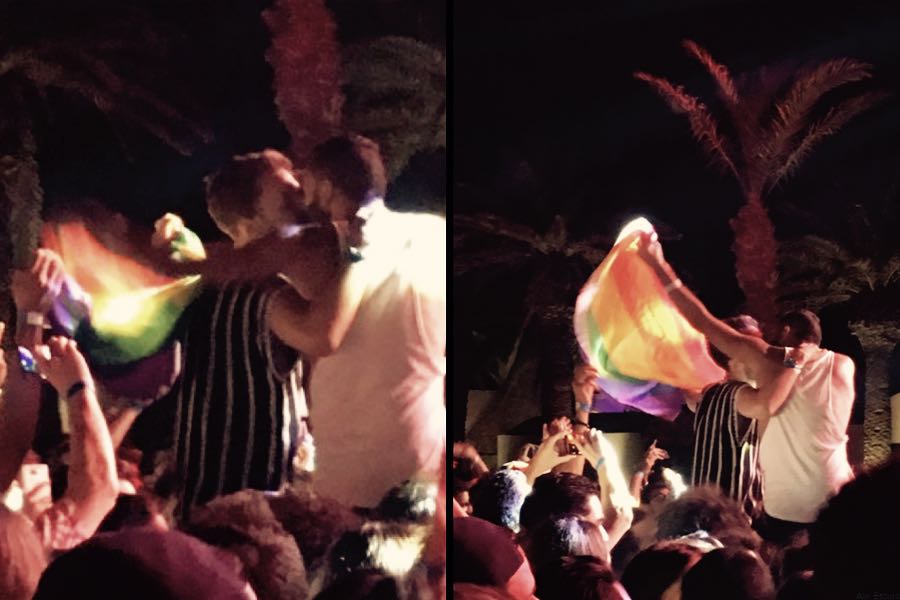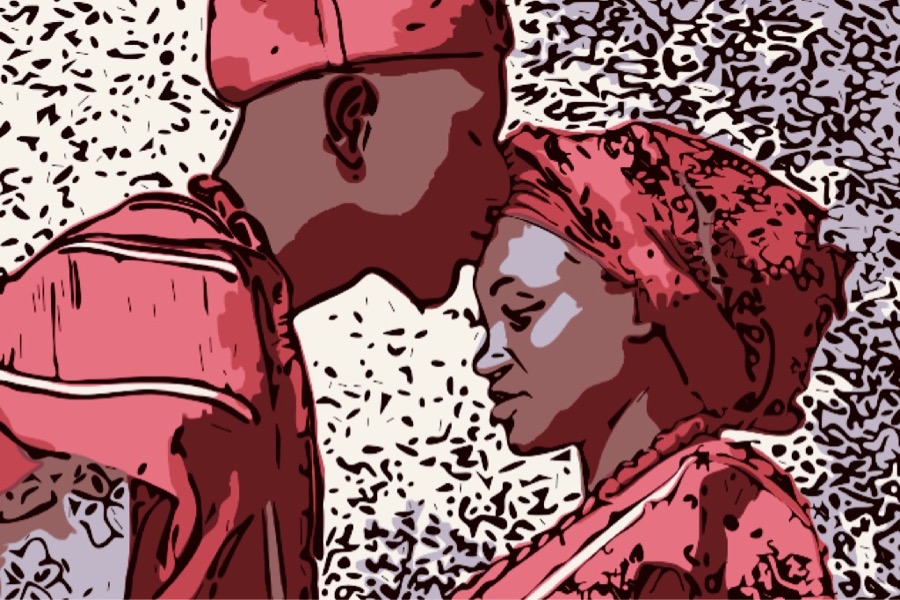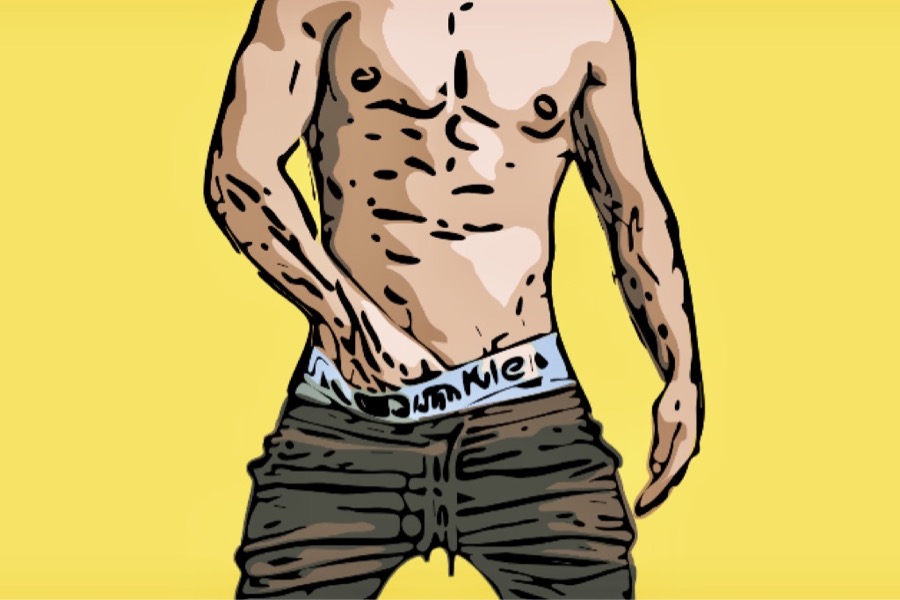A beautiful summer evening: ideal temperature, mellow atmosphere, seductive music. The perfect person is right next to you, standing on some friend’s shoulders, in front of the stage. In a moment like this, a kiss just doesn’t happen, it besieges you: lips fuse together, and the entire world shrinks to those lips, to those hairs between your fingers, to an erection of the heart, to a flood of emotion to your belly.
But in a parallel world, that perhaps is just a dream, the world around you continues to exist, to revolve, to see and judge. If you are a man and your partner is also a man, you can be sure the audience will notice your kiss, and how! If you live in Tunisia, it will make even more of a fuzz: gossips, likes and tweets will turn it into an event, a symbol of love – not just of that love makes you lose your mind, but also the proof of that still generally misunderstood, unspoken and disfavored love.
Certainly, that night in Tunisia, was encouraging: the Lebanese band born in 2008 called Mashrou’ Leila were playing songs of love and resistance, breaking hearts and taboos through Hammed Sinno’s voice (who publicly came-out in 2013), and the audience was waving rainbow flags. At a second thought, that kiss seemed inevitable, written in the book of destiny. “It was such a spontaneous gesture -tells Rania to The Huffington Post Tunisie– When you are in love, who cares about being straight, homo or bisexual? It was beautiful to watch”.
But in another parallel world, that perhaps is just a nightmare, the world around you continues to exist, to revolve counterclockwise, to see and judge. Some people cussed and insulted, other flipped you off. Because Tunisia is still that homophobic country in which, during that very concert, 26 suspected homosexuals, have been chased from the nightclub 1821 Village in Sousse, armed with clubs and slander, because: “Those faggots had inappropriate behaviors, nearly risqué (laying on the ground) in front of everyone” [Facebook]. On the opposite side, the guys who were banned argue they were just dancing, while the country LGBTQIA groups (Damj, Mawjoudin and Chouf) call to boycott the venue.
After its “spring”, Tunisia remains anchored to winters of incarceration, to handcuffs and anal testing, to slanders and shoves. Yet, during some warm July nights, it would feel so natural, so spontaneous, to wander into a summer of music, kisses, bread, and roses.
Pier
translation by Barbara Burgio
©2017 Il Grande Colibrì




